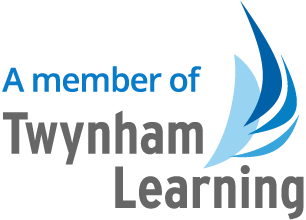Computing
A high-quality computing education equips pupils to use computational thinking and creativity to understand and change the world. Computing has deep links with mathematics, science and design and technology, and provides insights into both natural and artificial systems. The core of computing is computer science, in which pupils are taught the principles of information and computation, how digital systems work and how to put this knowledge to use through programming. Building on this knowledge and understanding, pupils are equipped to use information technology to create programs, systems and a range of content. Computing also ensures that pupils become digitally literate – able to use, and express themselves and develop their ideas through, information and communication technology – at a level suitable for the future workplace and as active participants in a digital world.
Purpose of Study, ICT National Curriculum, 2014
Intent
At Christchurch Junior School we believe that computing is an essential and valuable part of the National Curriculum. Computing is an integral part of modern day life and therefore we provide a wealth of learning opportunities, within Computing lessons and also across other curriculum areas.
It is our intention to enable our pupils to find, explore, analyse and present information. We teach the skills necessary for our pupils to be able to use and present information in an effective and efficient manner.
Our school promotes E-Safety. Within assemblies, lessons and investigations upon concerns that arise from pupils using social media, we intend that our pupils understand how to be safe while online and how they should manage themselves while using the internet and social media.
Computing skills are a major factor in enabling pupils to be confident, creative and independent learners and it is our intention that our pupils have opportunities available to allow them to achieve this.
Implementation
At CJS we are fortunate to be equipped with a Computer suite, where every pupil has their weekly 1 hour Computing lesson. The curriculum is designed for pupils to learn new skills and build upon these skills throughout Yr3 to Yr6. We believe that pupils should be encouraged to use Computers independently and experience using a range of programs where their skills and knowledge can be transferred and continued into their future education and wider life experiences. We are fortunate to have a program called LanSchool which enables teachers to model and monitor their progress during Computing lessons.
The National Curriculum defines three clear aspects of computing curriculum: Computer Science (CS), Information Technology (IT) and Digital Literacy (DL). Pupils will be given the opportunity to develop their knowledge and understanding in each area from the Year 3 to Year 6.
At CJS pupils will, as the National Curriculum states: design, write and debug programs that accomplish specific goals, including controlling or simulating physical systems; solve problems by decomposing them into smaller parts. Pupils will be taught to understand computer networks, including the internet, and the opportunities they offer for communication and collaboration. They will search the web effectively, learn to appreciate how results are selected and ranked, and be discerning in evaluating digital content. Pupils will be taught to select, use and combine a variety of software (including internet services) on laptops and computers to accomplish a given goal. They will use technology safely, respectfully and responsibly; recognise acceptable /unacceptable behaviour; identify a range of ways to report concerns about content and contact.
At CJS every year group uses the computer program called Scratch; this program enables pupils to develop knowledge, understanding and skills in computer programming. It is a programming language where pupils can create interactive programs such as stories, games, interactive quizzes and animations. As pupils create with Scratch, they learn to think creatively, work collaboratively and reason systematically.
E-Safety at CJS is taught during computing lessons. A widespread of topics are covered and consolidation of these topics occur throughout their CJS education. Each pupil has their own personal logon and saves their work in personal folders. This enables pupils and teachers to reflect upon their Computing achievements.
In addition to the Computer Suite, we have 4 trolleys of laptops which class teachers use to support other areas of the curriculum together with consolidating and implementing the skills they have learned during their Computing lessons.
Impact
Computing education at CJS is designed to equip pupils with the knowledge and skills to be independent, confident learners and users of computers. Pupils at CJS are positive about using computers and enjoy the experience. We envisage that pupils are able to choose appropriate programs to undertake tasks and use the tools effectively. They are able to connect with others responsibly and are competent, confident and creative users of technology.
Achievements of pupils computing knowledge, skills and understanding is reflected through the pupil’s ability to know, apply and understand the skills and processes specific to that unit. We assess the pupils through:
- Observing pupils at work during weekly computing sessions.
- Questioning the pupils in relation to their lesson focus, in order to assess their understanding.
- Setting tasks to reflect their level of understanding.
- Their personal folders which provides evidence for report writing and mastering the key elements of the curriculum.
Our pupils at CJS gain knowledge, understanding and skills from using a variety of Computing programs. Our aim is for the majority of our pupils to have the confidence to transfer and implement the computing skills and knowledge learned at CJS for tasks set in their future.


